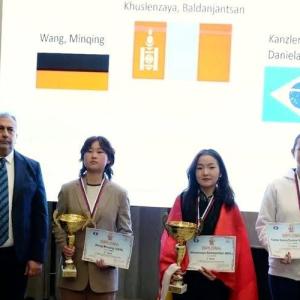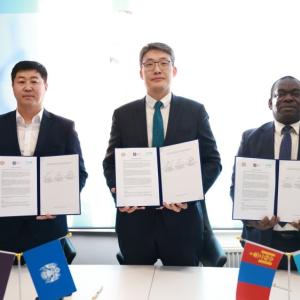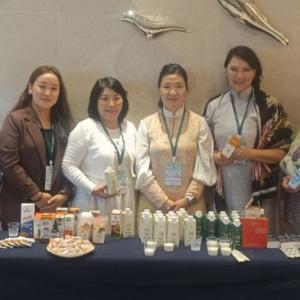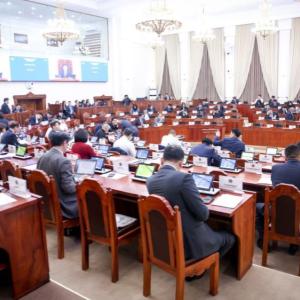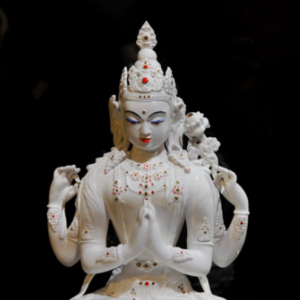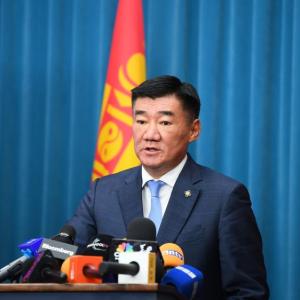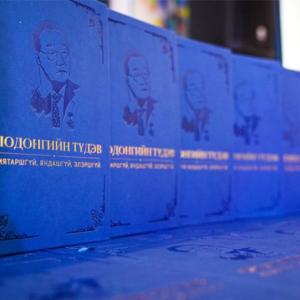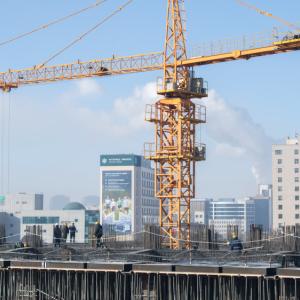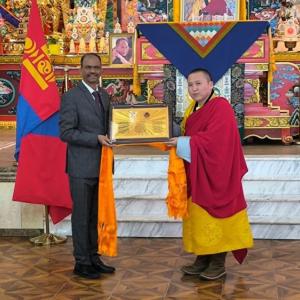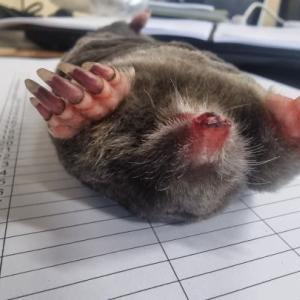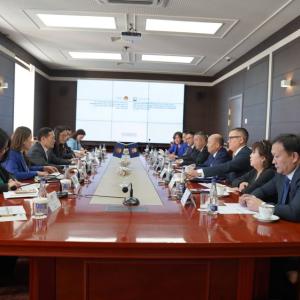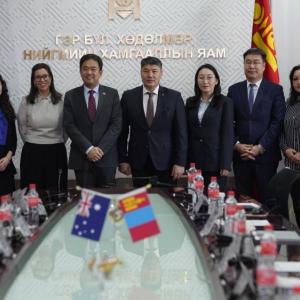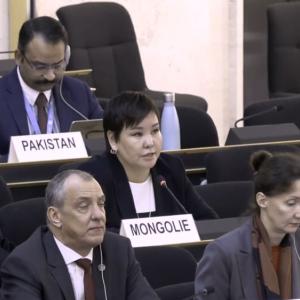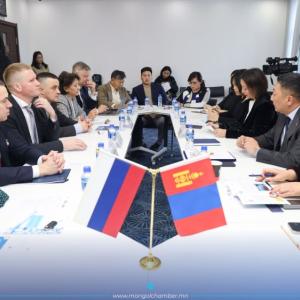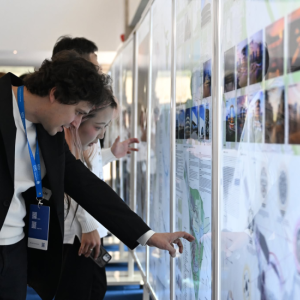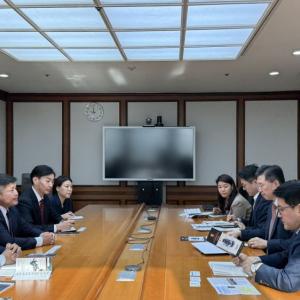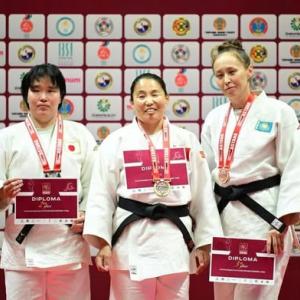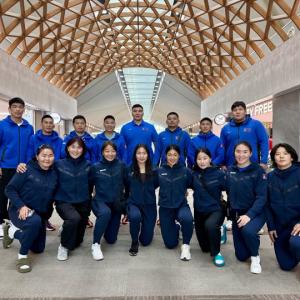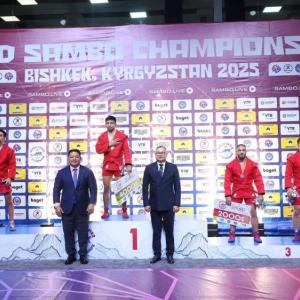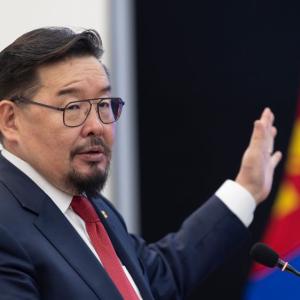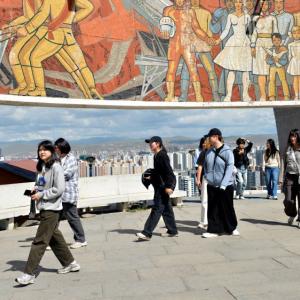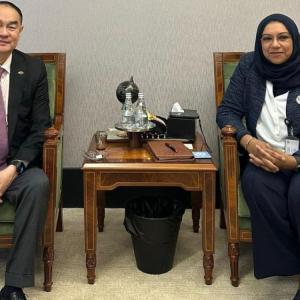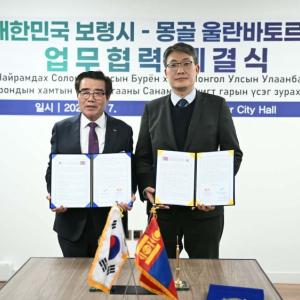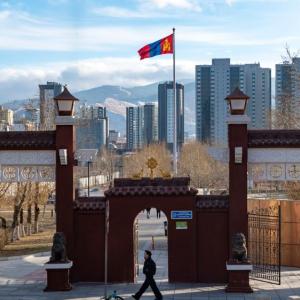Empowering Women in Peacekeeping: Championing Change While Capturing the Hearts of the People
The Mongol Messenger
Ulaanbaatar, August 29, 2023 /MONTSAME/. Exclusive Interview with Brigadier General G. Bolor
-First and foremost, I would like to extend my heartfelt congratulations to you on your remarkable achievement of being honored with the prestigious "International Women of Courage Award." Furthermore, I would like to express my sincerest gratitude to you for granting us the opportunity to interview you following such a momentous occasion. Could you kindly share your story of winning the award?
-Thank you very much. This award, officially known as the "International Women of Courage Award," is internationally recognized and conferred upon by the United States State Department. The history of the award dates back to 2007, where an annual competition was held to identify and honor exceptional women. This year, I was privileged to be among the select few, numbering eleven, chosen to receive this distinguished award. The entire experience, from the ambiance of the White House to the profound honor of receiving the award directly from the US Secretary of State and the First Lady, was truly magnificent.
Indeed, it was an extraordinary experience. The event took place at the White House and was attended by esteemed military personnels. The ambiance was filled with a sense of reverence and pride, heightened by the presence of a military orchestra playing harmonious melodies. It was evident that the military played a significant role in organizing this grand event. I was fortunate to have the Ambassador Extraordinary and Plenipotentiary of Mongolia to the United States U. Batbayar present at the ceremony, providing me with invaluable support.
The award was granted in three categories. First, the award recognizes women who have demonstrated exemplary leader[1]ship amongst their female counterparts within the region. These women have assumed prominent positions and have achieved re[1]markable results, particularly through their active involvement in peacekeeping operations, thereby contributing to the establishment of global peace. The award recognized human rights lawyers who have dedicated their efforts to safeguarding and upholding human rights, including the protection of women's and children's rights.
Lastly, the prize was also extended to journalists who have fearlessly covered perilous situations, with a particular emphasis on advocating the rights of women and children during times of war. These individuals have served as a voice for the voiceless and have diligently exposed the harsh realities to the public.
-The moment of receiving such an esteemed award must have been filled with a mix of emotions. After receiving the award, were you reminded of the responsibility that comes with it?
-This prompts the question: What should be my next steps? Observing the remarkable women who were honored alongside me, I was truly fascinated. Among them, I would like to highlight the female senator from Malaysia, who epitomized resilience and determination as she fought tirelessly for the rights of women and children in her country, fearlessly raising her voice at the state level despite facing numerous challenges. Witnessing her story ignited a profound sense of motivation within me.
A soldier bears distinct responsibilities during war, but during the time of peace, our roles take on a different nature. Adjacent to my primary duties and professional endeavors, the foremost question that arose in my mind was, "What more can I do?" It became clear to me that the Armed Forces should dedicate themselves to active training and preparing personnel even in peacetime. This, I believe, is where my true contribution lies.
Furthermore, as an individual, a woman, and a mother, I have embarked on a mission to inspire and empower girls and women. I have begun engaging with educational institutions, including general education schools and universities, delivering lectures and talks. There are numerous endeavors and initiatives that I have planned, awaiting realization. I am acutely aware of the expectations that accompany these awards-expectations that designate me as someone who will take action and make a difference. Therefore, the sense of "I have received an award, and that concludes my contribution" does not cross my mind.
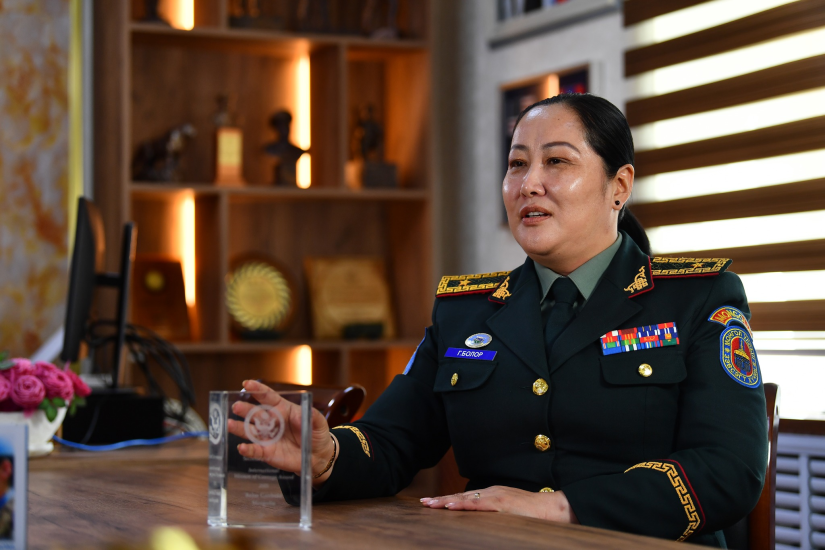
-I understand that you received a letter of gratitude from the First Lady of the United States Jill Biden. It appears that one of the most fascinating aspects related to the award is a recent letter you received.
-Receiving a letter from the First Lady of the United States was a profoundly surreal experience. The contents of the letter were concise but meaningful. It read, "To Brigadier General Bolor Ganbold. This letter expresses high appreciation for your significant contributions in empowering women worldwide. It conveys a sense of confidence that this endeavor will continue to expand, inspiring thousands of girls and women to engage in acts of goodwill.” As of now, the letter has not yet been framed, but it holds great value and significance for me.
-Did you dream becoming a soldier since you were a young girl?
-During my childhood, the idea of becoming a military did not occupy my thoughts. Instead, I saw myself as a doctor.
-I heard your mother encouraged you to apply to the military school?
-It was during the year of my tenth-grade graduation that the military school opened its doors to female applicants for the first time. True, my mother encouraged me to take the entrance examination. To my surprise, I succeeded in passing the exam and secured admission into the military school. That year, a total of six young women, including myself, embarked on this unprecedented journey as female cadets. Simultaneously, in that same year, the School of Officers admitted 20 female applicants, resulting in a combined enrollment of 26 aspiring female cadets.
-I could see that you respected the choice of your parents.
-Certainly, I did. There is no harm in heeding your parents' guidance as they always direct you towards the right course.
-I bet it’s hard to study along with male cadets. Did you struggle catching up to their speed and strength?
-I used to be a part of my school's basketball team, so I was quiet mobile. Back then, it was just something we all had to go through. Among all the challenges, standing outside in the freezing cold during winter was the toughest. I could feel the chill seeping into every inch of my body. As I looked at the cozy windows of houses, imagining people sitting comfortably at home, watching TV, I couldn't help but feel upset to my mother. I wondered, "How could she send her daughter to a school where she would stand shivering like this?" But eventually, I grew accustomed to enduring those moments. Since our home was nearby, I would sprint back, sometimes missing the formation. And I wasn't the only one running home; I would take a friend or two along. Our class boys faced punishment several times because of our actions. After we graduated, those boys often reminisced about the times we froze our ears because of our stubbornness. I never once apologized to them. So, I want to take this opportunity to express my regret and apologize to all the boys in my class.

-Upon completing your studies, you joined the General Staff of the Mongolian Armed Forces. Can you tell us more about your role within the Armed Forces?
-Our school initially offered a 4-year program, but due to the introduction of a new curriculum, the duration was extended to five years. I had the honor of joining the General Staff as an Electronics Engineer at the Computing Center after graduating with honors. I owe a great deal of gratitude to these individuals, who kindly extended their support during my transition to the Computing Center. Their assistance was invaluable and helped me navigate the early stages of my professional journey. They emphasized the importance of learning a foreign language as a young professional, as it opens doors to various opportunities. Motivated by their advice, I decided to embark on the journey of learning English. I was fortunate to have a supportive boss who recognized the significance of language proficiency and laid the foundation for my English language education.
-During your 30 years of service in the Armed Forces, how many positions did you hold?
-While my primary profession is that of a communications engineer, my career path has led me to take on various roles, allowing me to diversify my expertise.
I served as an electronic engineer at the computing center and later found myself teaching at the Mongolian National Defense University (MNDU) within the Communication Department for a remarkable period of seven years. To further enrich my skill set, I pursued a course in the English language and subsequently completed an evening program in International Relations at National University of Mongolia. Additionally, I undertook a teaching course at the US Defense Foreign Language Institute, which eventually led me to become the head of the MNDU’s foreign language training center. Along the way, I embarked on a transformative peacekeeping operation, and upon my return, assumed the roles of Head of the Training Department at the Unified Military School and the Training Department of the MNDU. Currently, I am honored to serve as the Head of the Education and Training Department at the General Staff of the Mongolian Armed Forces.

-How many peacekeeping operations have you participated in?
-I had the opportunity to participate in three peacekeeping operations throughout my career. First, in 2009, I was deployed to the Republic of Chad, where I served as a Human Resources Officer at the Military Headquarters. Subsequently, in 2013, I had the privilege of being appointed as the Head of the Liaison Department at the UNMISS Force Headquarters in South Sudan. It was a significant moment for me as I became the only woman to join the management team at the headquarters. This particular deployment was emotionally and professionally challenging due to the ongoing conflict in the region. Lastly, from 2015 to 2017, I worked in New York as mentioned above, which marked another phase of my peacekeeping journey.
-How would you describe your role as a homemaker and mother?
-My spouse D. Khashkhuu serves as the Chief of Staff of the Honor Guard, and our daughter, is a first grader. We are proud to serve in the military simultaneously, but it does come with its share of challenges in our personal lives. Thankfully, my mother tremendously supports us.
-As we conclude, we would like to pose a thought-provoking question. Do you envision a future where a woman might lead Mongolia's defense sector?
While it's a challenging question, I don't see anything that could prevent this. As times change and barriers are broken, it is entirely possible for a woman to lead Mongolia's defense sector one day. The key lies in recognizing and nurturing talent, regardless of gender.
-Thank you for sharing your inspiring journey and insights with us today. We wish you continued success in your endeavors.

 Ulaanbaatar
Ulaanbaatar





















